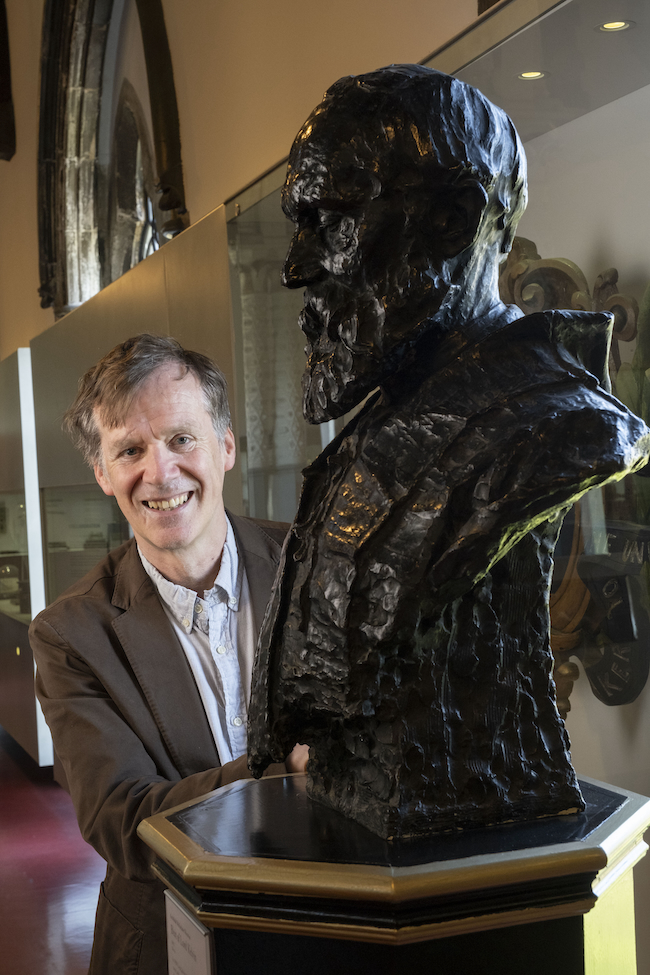Celebrating the life and work of Lord Kelvin
Published: 10 June 2024
QuantIC PI, Professor Miles Padgett, writes for The Herald on the achievements and legacy of William Thomson, Lord Kelvin, as the University of Glasgow prepares to celebrate the 200th anniversary of the birth of one of its most distinguished researchers.
Professor Miles Padgett's reflections appeared in the Herald on 29th May.
Nearly two centuries ago, on June 26, 1824, William Thomson was born in Belfast. A few years later, he and his family moved to Scotland, where his father took up a post as a lecturer in mathematics at the University of Glasgow.
At age 10, Thomson enrolled at the university as its youngest-ever student - early evidence of his remarkable mind. Thomson’s ground-breaking achievements in engineering, physics and mathematics during his lifelong work at the University would earn him the title of Baron Kelvin of Largs in 1892.
Lord Kelvin, as he is more commonly known, helped shape the world we live in today. He played a key role in laying the first transatlantic telegraph cable, paving the way for today’s ultra-connected communications networks. He developed the absolute temperature scale, better known today as the Kelvin scale, which was adopted across the sciences as the most precise measurement of temperature. His work on energy helped develop the electrical standards we use today, and he was the first person in the world to have a home entirely lit by electric light.

He was also a savvy businessman, who found ways to turn his research into products like the Kelvin marine compass, which provided ships with a more accurate method of navigation and helped him build a personal fortune.
As the holder of the Lord Kelvin Chair in Natural Philosophy at the University of Glasgow’s School of Physics and Astronomy, I’m honoured to be one of a cohort of researchers in the fields of science and engineering he helped create.
In my own research in quantum optics, Lord Kelvin’s work paved the way for devices we’re building now, like endoscopes the width of a single human hair that will revolutionise how we image inside the human body.
Kelvin’s work was based on a commitment to push the boundaries of precision measurement. My colleagues in the university’s Institute for Gravitational Research are key to the international LIGO collaboration which built the world’s most sensitive detector to search for gravitational waves - ripples in spacetime. In 2015, they played a major role in the historic first detection of these gravitational waves, which were first predicted to exist by Einstein a century prior.
Meanwhile, colleagues in the James Watt School of Engineering are pushing forward Kelvin’s achievements in communications, developing new technologies to underpin the ultra-fast 6G networks of the future. Others are extending Kelvin’s insights into thermogeology and thermodynamics to help find better ways to harness low-carbon energy, to help combat climate change.
Across the university, we’re celebrating Kelvin’s life and work with a series of public events and exhibitions in the four weeks leading up to the bicentenary of his birth, with more to come in the months that follow. I hope you’ll be able to join us on campus in June to find out more about this remarkable innovator, inventor and inspiration.
First published: 10 June 2024

